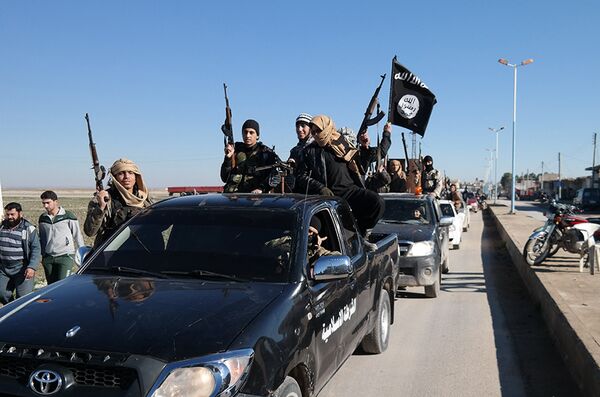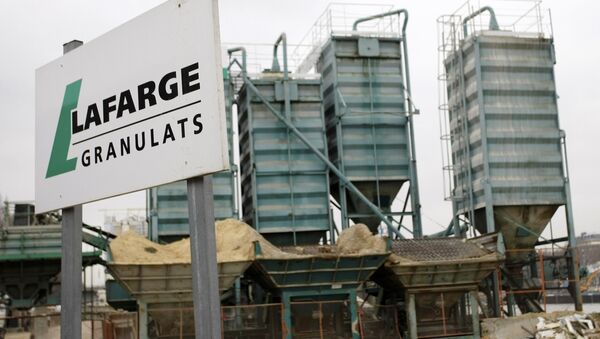https://sputnikglobe.com/20191107/french-court-clears-lafarge-giant-of-complicity-charge-for-paying-terrorists---reports-1077246149.html
French Court Clears Lafarge Giant of Complicity Charge for Paying Terrorists - Reports
French Court Clears Lafarge Giant of Complicity Charge for Paying Terrorists - Reports
Sputnik International
MOSCOW (Sputnik) - French cement giant Lafarge is no longer accused of "complicity in crimes against humanity," a Paris appeals court ruled, but is still... 07.11.2019, Sputnik International
2019-11-07T12:52+0000
2019-11-07T12:52+0000
2019-11-07T12:52+0000
https://cdn1.img.sputnikglobe.com/img/105119/19/1051191952_0:238:3336:2125_1920x0_80_0_0_a383e2a689af6fcb87bf4f18ba590327.jpg
france
syria
Sputnik International
feedback@sputniknews.com
+74956456601
MIA „Rossiya Segodnya“
2019
Sputnik International
feedback@sputniknews.com
+74956456601
MIA „Rossiya Segodnya“
News
en_EN
Sputnik International
feedback@sputniknews.com
+74956456601
MIA „Rossiya Segodnya“
Sputnik International
feedback@sputniknews.com
+74956456601
MIA „Rossiya Segodnya“
middle east, newsfeed, europe, business, france, syria, daesh, lafarge, lafargeholcim group
middle east, newsfeed, europe, business, france, syria, daesh, lafarge, lafargeholcim group
French Court Clears Lafarge Giant of Complicity Charge for Paying Terrorists - Reports
MOSCOW (Sputnik) - French cement giant Lafarge is no longer accused of "complicity in crimes against humanity," a Paris appeals court ruled, but is still implicated in "financing terrorism," "violating an embargo" and "endangering the lives of employees", France Info reported on Thursday.
Charges against ex-CEO Bruno Lafont and eight other executives remain in place despite the court having dropped the gravest of them, according to the France Info news outlet.
According to court materials, Lafarge sought to keep its cement producing facility in northern Syria operational at all costs despite the country's descent into civil war and the imposition of international sanctions. Among the charges is the accusation that they paid up to 13 million euros ($14.4 million) to radical armed groups for protection, including to the Daesh* and Jabhat al-Nusra* terrorist groups.
Present in Syria since 2007, the company's facility remained operational even when most international companies and ventures pulled out as a result of the economic sanctions against the Assad government.
The location of the plant near the Syrian-Turkish border, east of the Euphrates river, has been an especially volatile region throughout Syrian eight-year war. French judicial authorities believe that the company endangered the lives of its employees by keeping the plant running even when the land changed hands between government forces, the Free Syrian Army, and Daesh militants.
The company argues that it kept the plant in operation to support the local economy and protect jobs.
The European Union imposed restrictions on the Syrian government shortly after the start of the civil war in 2011. Apart from oil and arms embargoes, European for-profit companies are prohibited from operating on Syrian territory.
Lafarge remains one of the largest cement producers in the world, with annual revenues in the billions.
* Daesh (ISIL/ISIS/IS/Islamic State) and Jabhat al-Nusra (Hayat Tahrir al-Sham) are terrorist organisations banned in Russia



